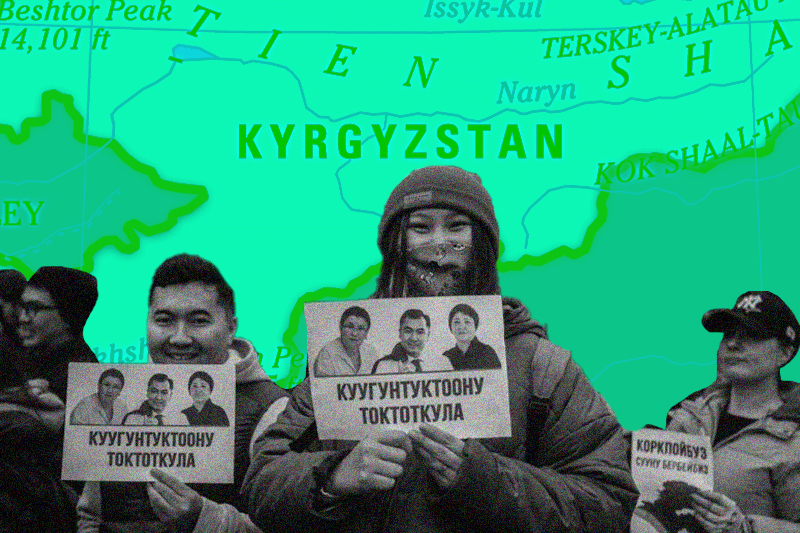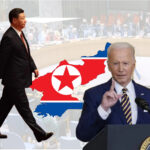
kyrgyzstan free the 22 ‘kempir abad’ protest detainees
March 20, 2023 in Bishkek Human Rights Watch demanded today that the 22 individuals who are currently detained pending trial in Kyrgyzstan and who disagreed with the government over a border issue be immediately released and have their right to due process respected.
On October 23, 2022, the detainees were initially arrested and held for 48 hours on the grounds that they had opposed the impending transfer of control over the significant dam, Kempir-Abad, to Uzbekistan as part of a border demarcation agreement. Even though international law stipulates that pretrial detention should only be used as an exception and for the shortest amount of time possible, they have been imprisoned for close to five months in locations unfit for long-term detention.
Syinat Sultanalieva the Human Rights Watch researcher for Central Asia said, “These citizens, who were exercising their rights to freedom of expression and assembly, should not have been placed in pretrial detention in the first place, much less still be there. If after a thorough investigation there is credible evidence that they have committed a crime, they should be given a fair trial and released right away.
Three of the original 25 detainees were moved to house arrest in January and February 2023 as a result of their declining health. The remaining 22 activists’ pretrial detention was extended by the Bishkek district court on February 17 until April 20.
According to “evidence obtained from a special investigation,” which appears to be a collection of edited and excerpted wiretapped conversations between some of the detainees, all of the detainees were accused of planning and organising a mass uprising. The audio montage appears to have been created to show some detainees calling for the overthrow of the government due to the divisive border agreement. All of their criminal cases were labelled as “secret” on January 18, making independent oversight impossible. If found guilty, the detainees could spend 5 to 10 years in prison.
Three times since October, the courts have extended the defendants’ pretrial detention by two months, which is the maximum period permitted by the Kyrgyz Criminal Procedural Code. The courts agreed with the prosecution’s argument that continued detention was required because the expert evaluation of the evidence gathered during the activists’ homes’ warrantless searches and the seizure of their personal belongings, including electronic devices, had not yet been completed. The criminal investigations have not made any noticeable advancements.
Keep Reading
More about the Kyrgyzstan ,Kempir-Abad case
According to Human Rights Watch, the “Kempir-Abad case,” as it has come to be known, is rife with procedural irregularities that are incompatible with the nation’s obligations under international human rights law. It has also demonstrated the lack of compassion the authorities had for detainees who already had health issues or had them arise as a result of the poor conditions in the detention facilities. Children who have only been able to see the detainees through bars during one of the three court hearings on their detention extension are not permitted to visit them.
As the facility is not designed for long-term stays, there are reports that the conditions are worse than in regular prisons. Rita Karasartova, the daughter of a detained human rights advocate, wrote on Facebook on March 12 that detainees are only permitted to exercise for 40 minutes each day in a cubicle measuring 5 by 6 metres with a roof made of metal bars. On December 14, 19 detainees, including four women, went on a hunger strike for two weeks to protest detention conditions, leaving them in a weakened and debilitated state, their lawyers said.
The health of several detainees has drastically declined while they have been held captive, including Klara Sooronkulova, a former Constitutional Court judge, who was moved to a hospital on February 20 for surgery. Despite not finishing rehabilitation, she was forced to return to a pretrial detention facility on March 14.
The detainees’ family members demonstrated on March 17 under the banner “For Justice and Freedom,” requesting, among other things, their release. In the months following the detention of the detainees, there have been numerous additional protests by their family members. One protest in January led to the detention of 27 family members, who were all released the same day.
National and international organisations have voiced concern over the investigation’s lack of observable progress and the lack of accountability for the case’s ongoing procedural violations. In accordance with international human rights norms and standards, the UN Office of the High Commissioner for Human Rights reminded the Kyrgyz authorities in a statement on October 26 that the “Kempir-Abad case” detainees should be presumed innocent and that pretrial detention should be an exception.
The International Covenant on Civil and Political Rights, to which Kyrgyzstan is a party, protects the right to free expression, association, and assembly, and the UN Human Rights Committee classifies detention as punishment for the legal exercise of these rights as arbitrary and impermissible.
International allies of Kyrgyzstan should press the government to free the activists who were wrongfully detained and to ensure fair trials.
According to Sultanalieva, “the ‘Kempir-Abad case’ is a litmus test for the humanity and suitability of the Kyrgyz authorities to remain a respectable partner in the international community of states. “They should uphold their international human rights obligations and immediately release all those who have been detained, ensuring that investigations into each of their cases are effective and finished on schedule, and providing redress and compensation for those who have been wrongfully detained.”









